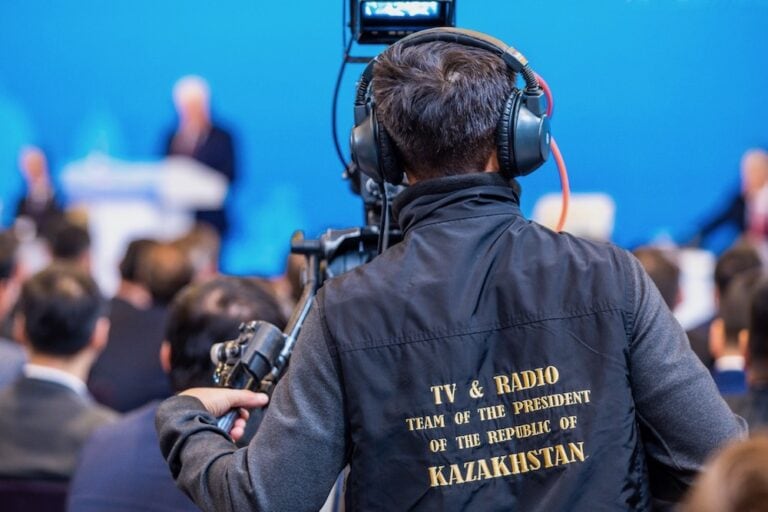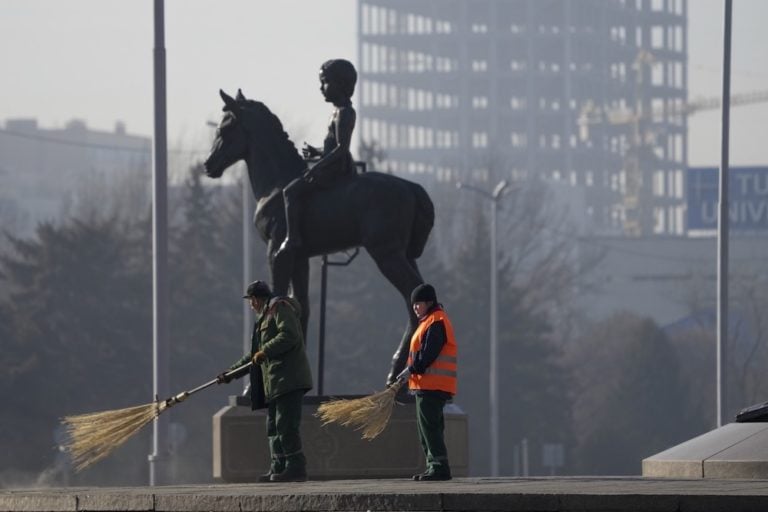(CPJ/IFEX) – The following is a CPJ press release: KAZAKHSTAN: Opposition newspapers blocked from printing New York, January 19, 2006 – The Committee to Protect Journalists is alarmed that Kazakhstan’s biggest printing company, which is run by a relative of President Nursultan Nazarbayev, has refused to print seven Almaty-based opposition newspapers. Local press freedom groups […]
(CPJ/IFEX) – The following is a CPJ press release:
KAZAKHSTAN: Opposition newspapers blocked from printing
New York, January 19, 2006 – The Committee to Protect Journalists is alarmed that Kazakhstan’s biggest printing company, which is run by a relative of President Nursultan Nazarbayev, has refused to print seven Almaty-based opposition newspapers.
Local press freedom groups said that the company, Dauir, told the editors of the weeklies Svoboda Slova, Epokha, Apta.kz, Soz, Pravda Kazakhstana, Pravo.Ekonomika.Politika.Kultura, and Azat that it would not renew their contracts, which expired January 1, 2006, because it was changing equipment.
However, local media watchdogs Adil Soz and Kazakhstan’s International Bureau for Human Rights and the Rule of Law quoted the editors as saying they were being harassed because of their critical coverage of the president.
Nazarbayev’s sister-in-law, Svetlana Nazarbayeva, is the director general of Dauir, the privatized successor to the state printing house of Soviet times.
“We condemn this arbitrary decision to deny opposition newspapers access to the country’s main printing press,” said CPJ Executive Director Ann Cooper. “We call on President Nazarbayev to ensure that Dauir renews its contracts with the seven papers immediately.”
The government has a history of harassing media critical of the president through politicized lawsuits, tax inspections, and suspensions for minor technical violations such as using an unregistered logo, CPJ research shows.
Other printers have also refused to print opposition newspapers. On September 26, 2005, two months before a presidential election, Svoboda Slova, Epokha, Apta.kz, Soz, Azat, and Zhuma-Taims were all prevented from printing at Vremya-Print. The company gave no explanation for its refusal but both local journalists and press freedom advocates said the reason was that all the titles had covered the campaign of opposition presidential candidate Zharmakhan Tuyakbai. On December 22, 2005, a Kazakh court closed Zhuma-Taims for carrying material “insulting the president,” The Associated Press reported.
In the run-up to the election, police raided Dauir’s offices several times and confiscated copies of Svoboda Slova and Zhuma-Taims, according to CPJ sources and press reports. “This gives us reason to believe that somebody was screening the editions right off the presses, looking for information that could be deemed damaging to Nazarbayev’s reputation and then reporting that to the police,” one source told CPJ.
Adil Soz said government pressure on the media had not eased since the December 4 election that Nazarbayev won with 91 per cent of the vote. International observers said the election was neither free nor fair.
CPJ is a New York-based, independent, nonprofit organization that works to safeguard press freedom worldwide. For more information on Kazakhstan, visit http://www.cpj.org.


